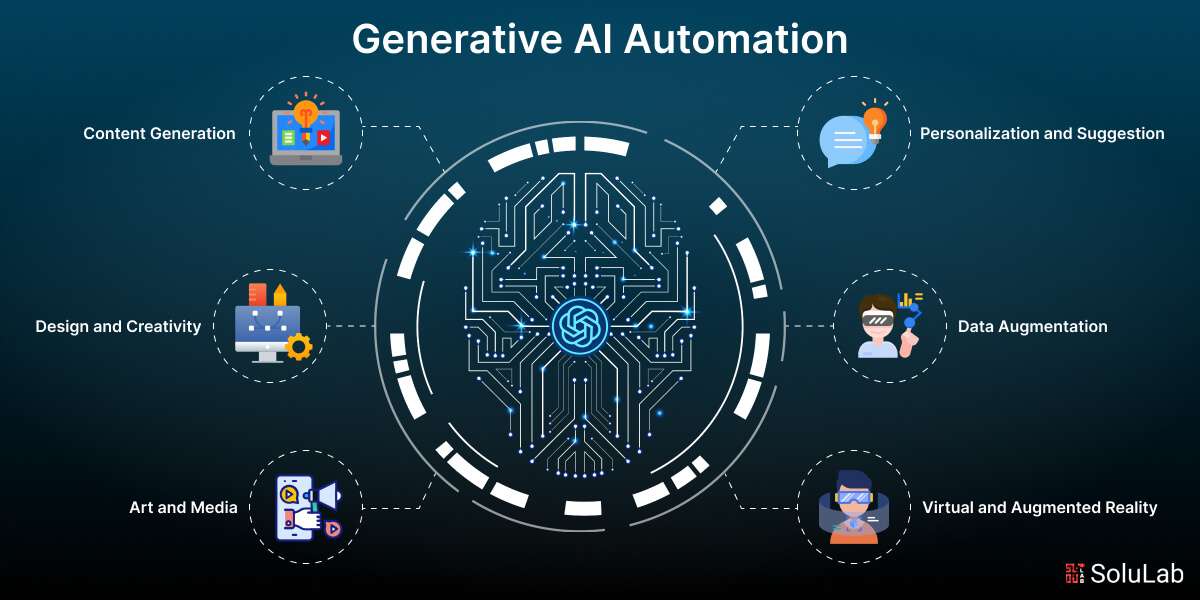
The Ultimate Guide to AI Automation for Businesses
Artificial intelligence (AI) is rapidly transforming the business landscape, offering unprecedented opportunities for automation and efficiency. This comprehensive guide explores AI automation, covering its definition, available solutions, implementation strategies, and how to build a successful AI business.
What is AI Automation?
AI automation leverages artificial intelligence to automate tasks, saving businesses time and money. It’s about using AI to handle repetitive, mundane tasks, freeing up human employees to focus on more strategic and creative work. This includes automating processes like:
- Repetitive data entry and processing
- Lead generation and nurturing
- Content creation and marketing
- Customer service and support
- And many other business functions
AI is not about replacing humans entirely; it’s about augmenting human capabilities, taking over the “grunt work,” and enabling people to focus on higher-value activities.

Types of AI Automation Solutions:
Several types of AI automation solutions are available, each addressing specific business needs:
- AI Agents: These are AI-powered digital workers that autonomously handle specific tasks. They can be:
- Text-based: Chatbots on websites, messaging apps, etc.
- Voice-based: Smart phone operators, virtual assistants, etc.
- Inbound AI voice agents can provide 24/7 multilingual customer support.
- Outbound AI voice agents can generate leads or contact customers en masse.
- Workflow Automation: This involves creating automated systems that connect various tools and handle routine tasks like scheduling, data processing, and other repetitive operations.
- AI-Powered Outreach: This includes automated cold outreach systems that personalize campaigns using lead scraping, email finding, message customization, and automated follow-ups. AI can enrich leads, write personalized copy, and even generate videos.
- Content Creation: AI can generate various forms of content, including images, videos, music, and written text. It can also repurpose existing content for different platforms and formats.
- Information Retrieval Systems: These systems use AI agents to analyze company documentation, enabling employees to quickly find answers to their questions.
- Appointment Setting Systems: AI can automate the appointment scheduling process, streamlining the transition between marketing and sales.
- AI-Enhanced Lead Magnets: AI can create personalized lead magnets that collect information from potential customers and provide them with tailored value in return.
- AI-Enhanced Recruitment: AI can analyze job applications, shortlist candidates, and manage the initial stages of the hiring process.
Implementing AI Automation:
Implementing AI automation involves several key steps:
- Utilize No-Code/Low-Code Tools: Businesses can use these tools to build their own AI automation systems without extensive coding knowledge.
- Partner with AI Automation Agencies: These agencies specialize in building and deploying AI solutions for businesses.
- Identify Key Areas for Automation: Pinpoint areas where AI can save time, reduce costs, or increase revenue.
- Focus on Specific Problems: Start with addressing specific business challenges before implementing broader solutions.
- Embrace “Good Enough” AI: AI systems don’t need to be perfect from the start; they can be improved over time. Focus on providing value through scalability, cost savings, or improved efficiency.
Starting an AI Business:
Starting an AI automation agency is a viable entry point into the AI industry. It offers opportunities to:
- Develop valuable AI skills and gain real-world experience.
- Build a scalable business model.
Key considerations for AI businesses:
- Specialize: Focus on specific areas like AI agents, workflow automation, or a particular industry.
- Build a Personal Brand: Showcase AI solutions through content creation and thought leadership.
- Generate Leads: Implement effective outreach strategies to attract potential clients.
- Implement Value-Based Pricing: Charge clients based on the value delivered to their business, rather than simply hourly rates. Focus on high-value, scalable solutions.
- Offer Additional Services: Provide consulting services and create educational products to train businesses on AI usage.
The AI landscape is still emerging, presenting significant opportunities for businesses that embrace innovation. Adopting an “AI-first” mindset, where AI is central to business strategy, is crucial for future success.
Skills Needed for AI Automation:
Several essential skills are required for effective AI automation:
- Prompt Engineering: Crafting effective instructions for AI models to achieve desired results.
- No-Code AI Agent Development: Building digital workers using no-code platforms.
- API Integration: Connecting different tools and systems through APIs.
- Broad AI Knowledge: Developing a range of AI skills across various business functions is crucial for becoming an “AI generalist.”
Conclusion:
By understanding these key areas, businesses can effectively implement AI automation, enhance efficiency, and gain a competitive edge. Embracing AI is no longer optional; it’s a necessity for businesses looking to thrive in the modern technological landscape.

